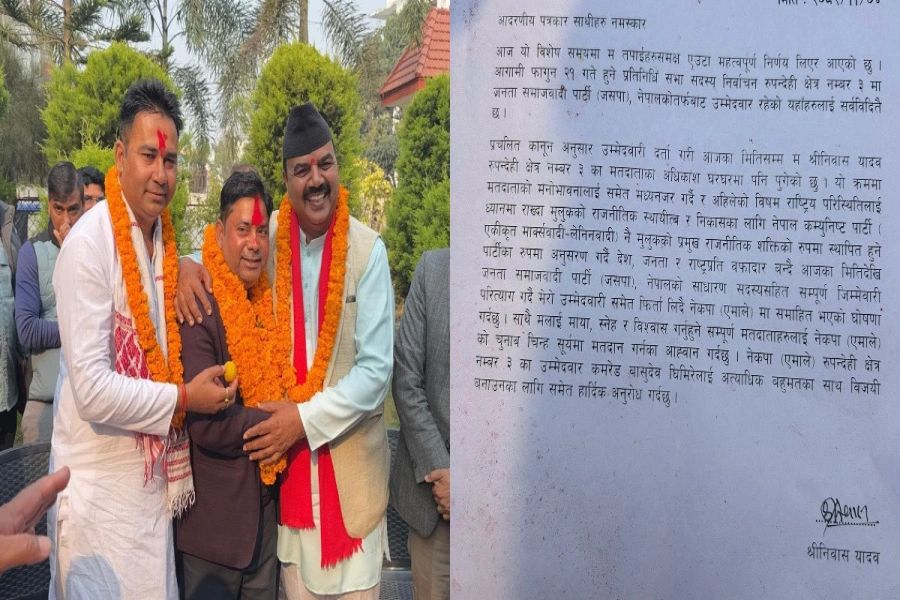KATHMANDU, June 14: The World Bank Group on Friday unveiled the “Country Partnership Framework for Nepal (2025-2031)” during a formal event in Kathmandu. The framework lays out the World Bank Group's strategic partnership and collaboration plan for Nepal over the next six years.
Speaking at the event, Deputy Prime Minister and Finance Minister Bishnu Prasad Paudel said the framework aligns with Nepal's 16th periodic plan and charts a roadmap for development, good governance, social justice, and prosperity through structural economic transformation.
Minister Paudel noted that the framework supports Nepal's top priorities, including inclusive economic growth, productive employment, increased competitiveness, sustainable social protection, and climate resilience.
Growth rebounds strongly to 7. 5 percent in FY2017: World Bank

Finance Minister Bishnu Prasad Paudel said the framework focuses on two major challenges Nepal faces—creating employment opportunities and enhancing disaster resilience—while aiming to improve the living standards of citizens, especially vulnerable groups. He added that implementing the framework will directly improve Nepal's business environment, develop infrastructure, promote tourism, and strengthen education and skills.
He further stated that investing in infrastructure and expanding digital access will boost economic growth, enhance public service delivery, increase citizens' crisis resilience, and encourage more active participation in economic and social life. Paudel also emphasized that, as a country highly vulnerable to natural disasters and climate change, Nepal must prioritize disaster preparedness, risk reduction, and the sustainable use of resources.
Finance Minister Bishnu Prasad Paudel emphasized that the framework's focus on strengthening public institutions, accountability, and effectiveness marks a positive step forward, as strong institutions can truly transform development goals into reality. He reaffirmed Nepal's commitment to partnering with the World Bank Group to improve public financial management, reform procurement systems, and strengthen environmental and social safeguards.
World Bank Group Managing Director Axel van Trotsenburg, speaking at the framework's launch, stated that the framework prioritizes domestic job creation, economic growth, enhanced resilience to natural disasters, and risk mitigation related to climate change. He added that the framework's plans and programs align with Nepal's 16th Periodic Plan (FY 2024/25-2028/29).
The World Bank aligned this framework with Nepal's 16th Periodic Plan, considering the country's development needs. "The framework prioritizes key areas such as job creation, sustainable economic growth, ending extreme poverty, and developing sustainable infrastructure in line with the country's development goals and needs," said Managing Director Axel van Trotsenburg.
At the event, David Sislen, the World Bank Country Director for Nepal, Maldives, and Sri Lanka, explained that the framework coordinates and collaborates with Nepal's development priorities, placing job creation at the center. He noted that remittances contribute 25 percent to Nepal's GDP and that informal unemployment persists as a challenge. He said the framework guides efforts to increase domestic production and address these issues. He also emphasized the need to develop sustainable infrastructure and promote private sector-led growth in tourism.
Imad Fakhoury, IFC Regional Director for South Asia, underlined the importance of promoting the private sector and creating a business-friendly environment to support Nepal's economic growth and development. He also highlighted the need to strengthen small and medium-sized enterprises (SMEs) as part of this approach.






































